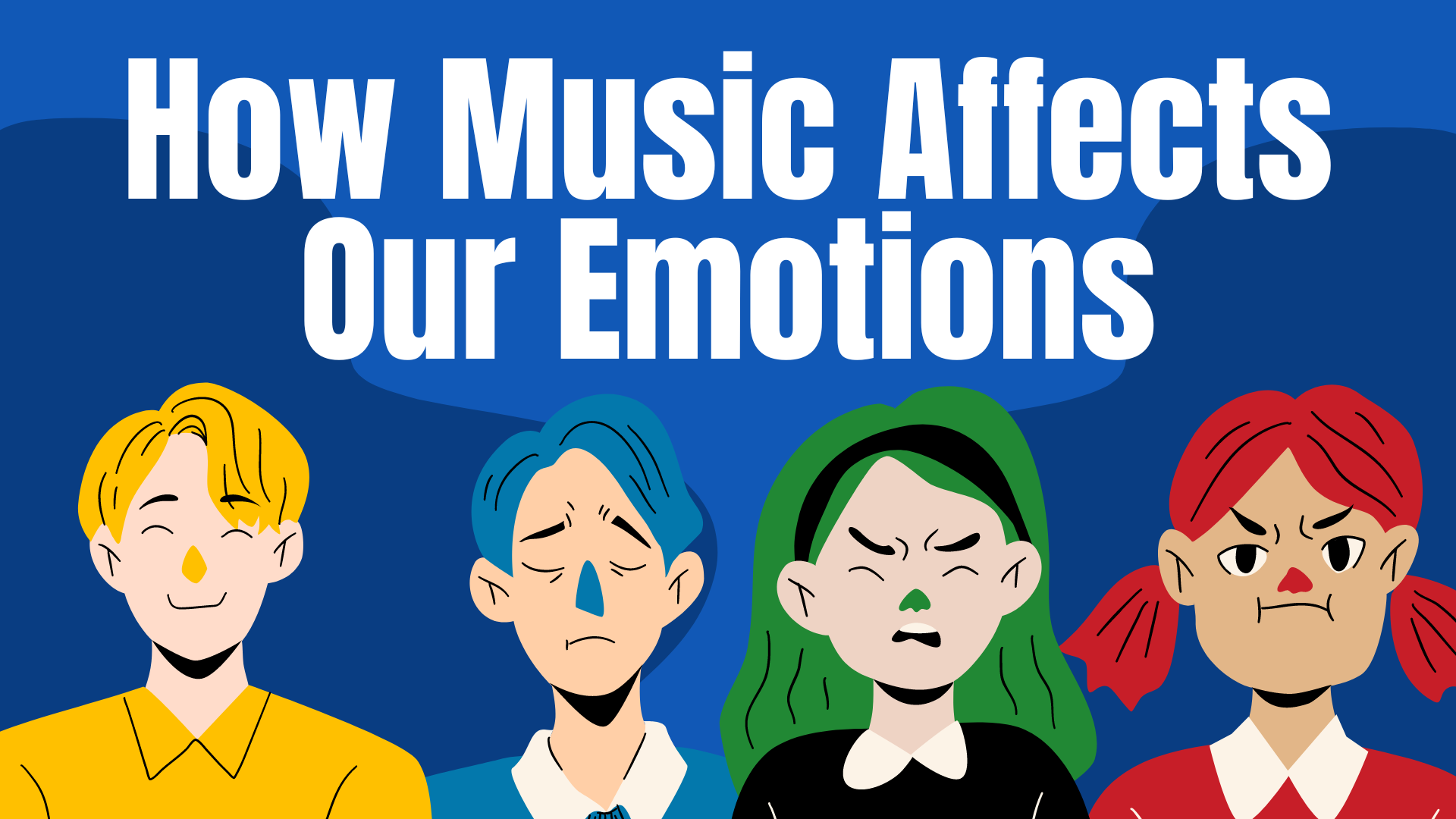Nobody understands why music affects our emotions in such a powerful way. However, some recent research has given us some intriguing hints.
Why is music appealing to us? This is a multifaceted question, as are most good ones. Not all of the levels have answers, but some do.
We enjoy music because it uplifts our spirits. Why does it fill us with happiness? The answer came from Montreal-based neuroscientists Anne Blood and Robert Zatorre at McGill University in 2001.

Through the use of magnetic resonance imaging, they demonstrated that individuals who were enjoying music had active limbic and paralimbic areas in their brains.
These regions are linked to euphoric reward responses, such as those we get from fulfilling relationships, delicious food, and addictive substances. Dopamine is the neurotransmitter that is associated with such rewards. Music is the drug, as DJ Lee Haslam once told us.
However, why? It’s simple enough to comprehend why food and sex give us a dopamine high since they satisfy our cravings and help ensure our survival and procreation. But why would a series of sounds that have no discernible survival significance act in the same way?

In actuality, nobody is aware. Still, there are now a lot of hints as to why music evokes strong feelings. In 1956, philosopher and musician Leonard Meyer proposed a theory that has been popular among academics studying music cognition, or how humans absorb music mentally.
Meyer postulated that emotion in music is mostly determined by our expectations and our ability to meet them. Meyer drew from past theories in psychology about emotion, which postulated that emotion develops when we can’t fulfill a need.
Also Read Our Article On “Innovative Sound Design Techniques for Unique Music Productions“
As you may guess, that leads to frustration or rage, but the reward is greater if we eventually find what we’re searching for be it a cigarette or love.
Meyer contended that music also accomplishes this. It creates auditory patterns and regularities that entice us to inadvertently guess what will happen next.
If our theory is correct, the brain rewards itself with a small amount of dopamine, as we now understand it. The brain is thus stimulated with a delightful waltz of emotions by the ongoing tango between expectation and outcome.
But why should it matter whether our musical expectations are met or not? It’s not like they were essential to our survival. Yes, but maybe once it did, according to David Huron of Ohio State University.

Predicting our surroundings, or judging what we hear and see, for example, based on incomplete knowledge, may have formerly been crucial to our survival and is frequently still, like when crossing a road, for example. And it might have been a good idea to include the emotions in these expectations.
Our predecessors did not have the luxury of wondering if that cry was coming from a lion skulking in the distance or a harmless monkey. Instead, they lived on the African savannah. Through circumventing the “logical brain” and directly accessing the basic limbic circuits that govern our emotions, the mental processing of sound may trigger an adrenaline surge, a visceral reaction that primes us to leave the situation regardless.
As logical brains argue that this is just unscrupulous manipulation, who hasn’t been humiliated by the tears that build up as the strings swell in a sentimental film? We all know that music has this direct access to emotions.
Even when we know that a Mozart sonata contains nothing potentially fatal, we are powerless to suppress our anticipating instinct or its emotional connection. Huron claims that “musicians have a golden opportunity because of nature’s tendency to overreact.”
“Composers are able to use the most benign stimuli possible to create passages that manage to elicit remarkably strong emotions.”
Music check
The most promising candidate explanation appears to be that musical feeling results from small betrayals and manipulations of our expectations, although testing this theory is extremely challenging.
One explanation for this is that there are so many opportunities for generating and going against expectations in music that it’s difficult to decide what metrics to use. We anticipate rising melodies to keep increasing, though maybe not forever, as they never do.

Instead of startling dissonance, we expect pleasant harmonies, but two centuries ago, something may have sounded discordant. We anticipate regular rhythms, so we’re taken aback if the erratic syncopation of rock ‘n’ roll abruptly transforms into four-square oompah time.
A complex and dynamic interplay between the work we’re hearing thus far, how it stacks up against other pieces and styles of a similar nature, and how it compares to everything we’ve ever heard, is the basis of expectation.

Accordingly, a logical extension of Meyer’s theory is that musical feeling will predominantly reflect cultural context. You must understand the norms in order to have any expectations about the direction the music will take in the first place.
This differs depending on the culture. While Eastern Europeans dance joyfully to meters that seem incredibly complex to others, Western Europeans consider simple rhythms like waltz time to be “natural.”
We all acquire a keen feeling of which notes, whether played simultaneously in a melody or in harmonies, sound “right.” This is a strong subconscious sense.

However, there is nothing universal about these expectations because different cultures employ different scales and tunings. For example, the scales of India and Indonesia don’t respect piano tunings.
For all the world, an upbeat piece of Indonesian music could sound “sad” to Western ears just because it approaches the usually “sad” minor scale.
This image also suggests that music can elicit negative emotions in addition to positive ones, such boredom, anxiety, and even rage. Artists and composers must carefully balance expectations, adjusting them to the perfect extent.

Not enough, and the music is as cloyingly predictable as adult nursery rhymes. Many individuals find modernist atonal music difficult to listen to because when there is too much of it, we are unable to form any expectations at all.
All of this helps to explain why some musical performances and words evoke strong feelings in us. Recent brain-scanning research by Zatorre and colleagues has provided additional evidence in favor of Meyer’s theories.
It revealed that the connection between the brain’s “emotion” and “logic” circuits is particularly important for the rewards elicited by listening to music for the first time.
However, that isn’t the entire tale. Numerous other circumstances may also influence our emotional reaction to music, such as whether we are listening to it in a crowd or alone, or whether a certain song reminds us of a positive or negative experience from the past (a concept known as the “Darling they’re playing our tune” idea).
Beneath all of these concepts is the reality that we are often unsure of the exact emotion we are discussing.
Even when we’re not depressed, we can still identify melancholy music. It can be joyful even if it makes us cry, unlike the melancholy that comes from losing a loved one.
Bach’s music can inspire deep emotions that are hard to articulate. Without a better knowledge of our emotional environment, we will never be able to explain why music evokes intense emotions.

